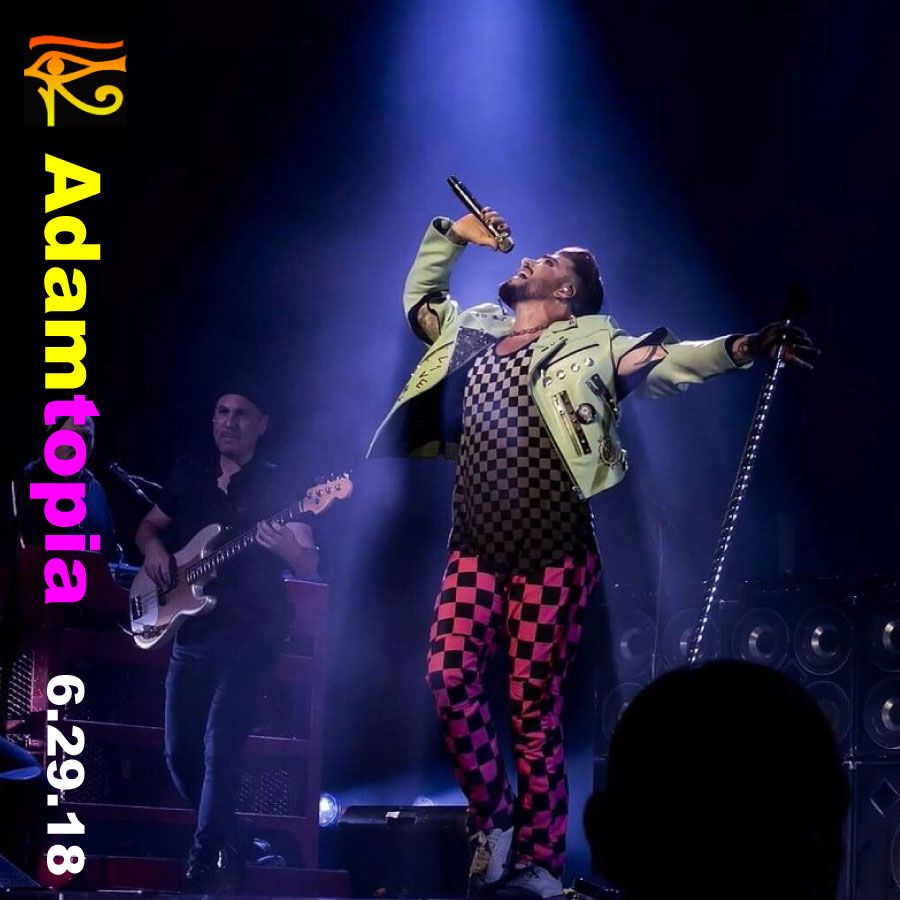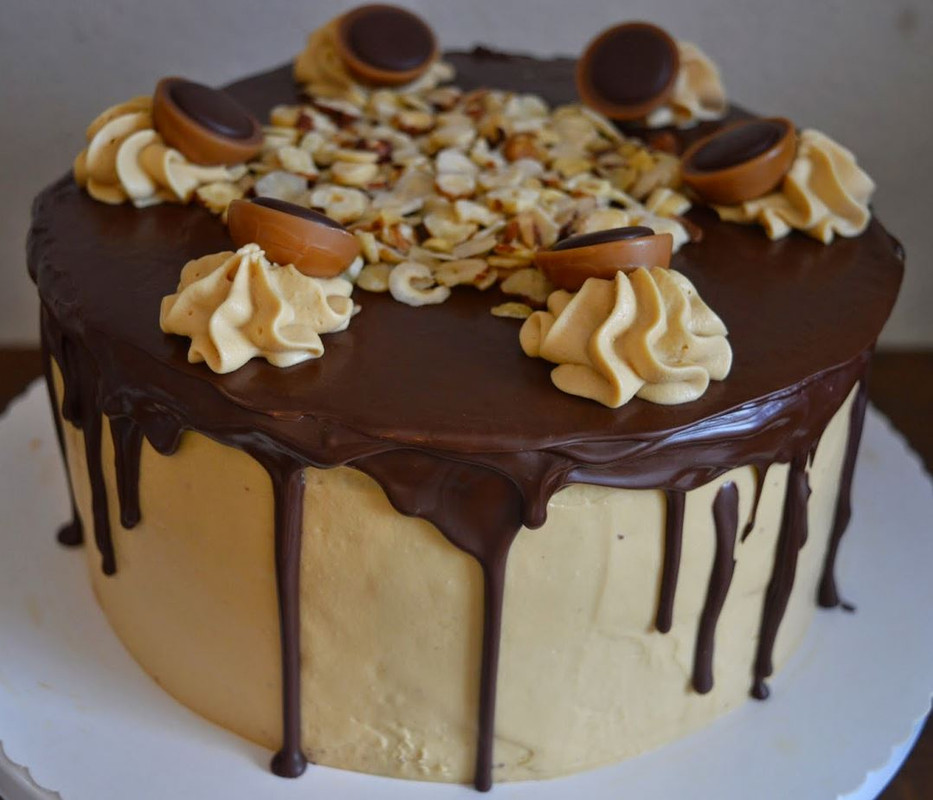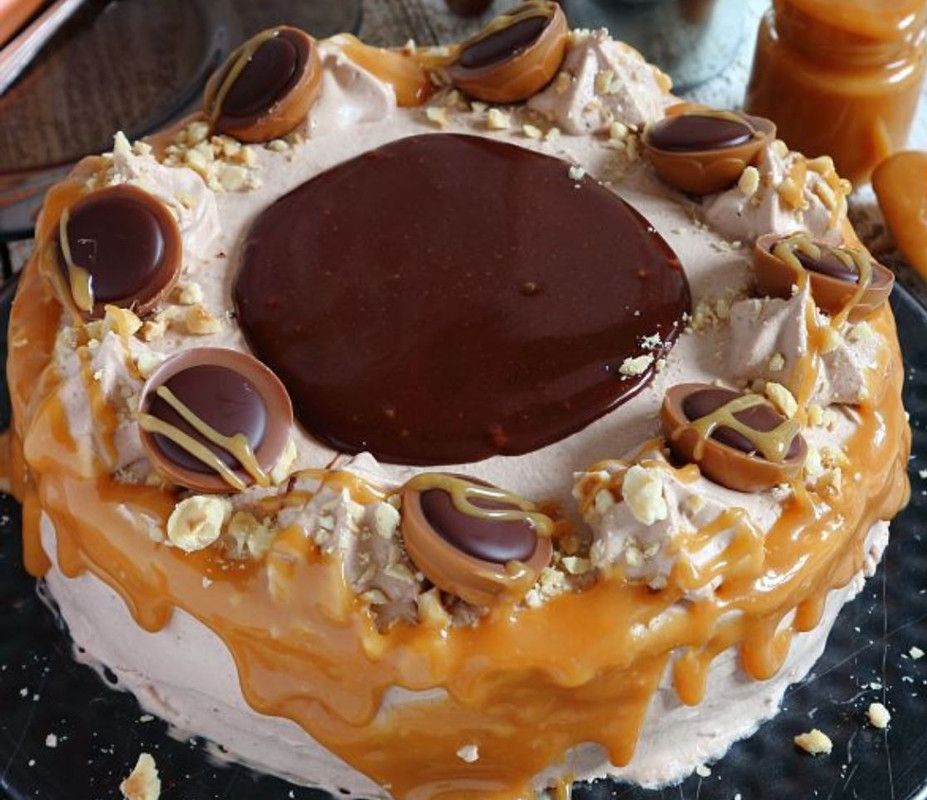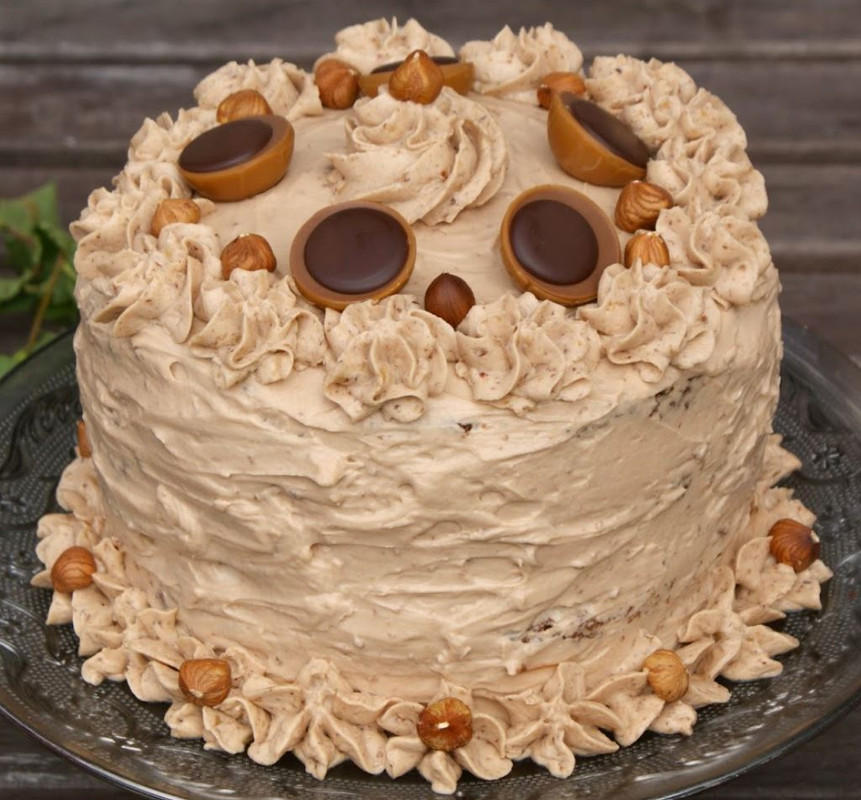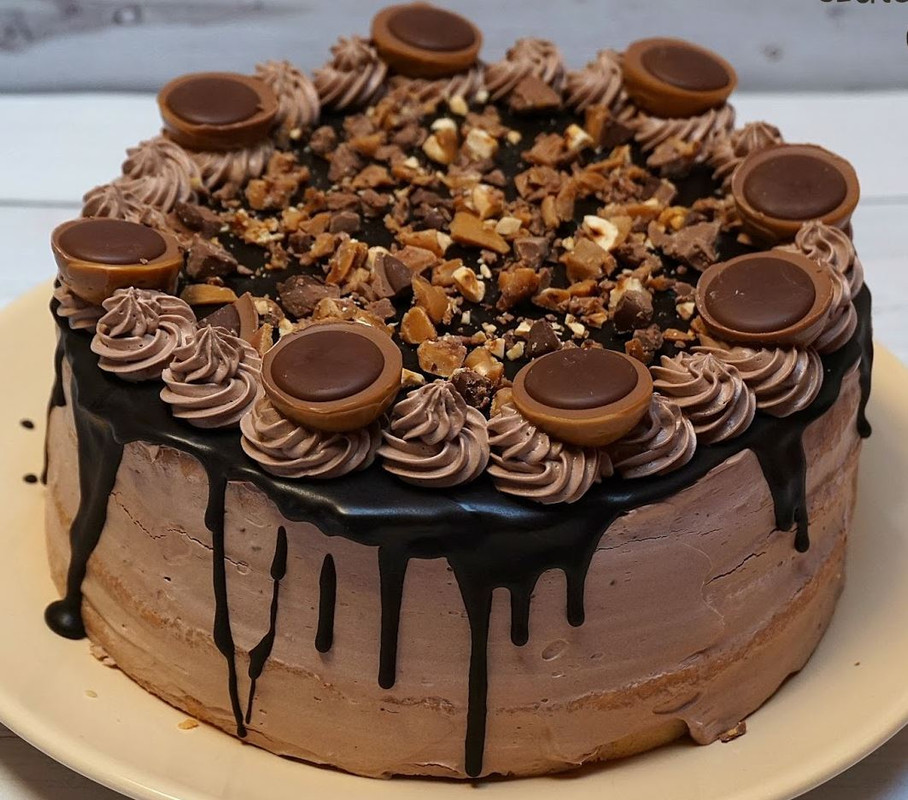Great article!
www.theguardian.com/music/2018/jun/29/adam-lambert-now-theres-an-audience-for-me-being-exactly-who-i-am?CMP=share_btn_twAdam Lambert: 'Now there’s an audience for me being exactly who I am'
The fuss over his sexuality in 2009 highlights how attitudes have moved on in a decade. Ahead of a European tour with Queen, the singer looks back on prejudice and how he helped change pop
by Michael Cragg
Fri 29 Jun 2018 09.00 BST Last modified on Fri 29 Jun 2018 09.59 BST
Despite being dressed like the archetypal US rock star – yellow-tinted aviator shades, black leather fingerless gloves, immaculate facial topiary – American Idol alumnus and adopted Queen frontman Adam Lambert is telling possibly the least rock’n’roll story ever. The night before our interview, he was kept awake at an unnamed London hotel by a “full-ass party” in the next room. “I called four different times, all this shit, and they wouldn’t shut it down,” he huffs, trying to contort his not inconsiderable frame into a tiny chair in his PR’s office. “We just found out it was a celebrity,” he adds, refusing to name names. Here for a whistlestop press tour ahead of another European jaunt with Queen, he’s now half rock cosplayer, half sleep-deprived octogenarian.
We talk about getting older. Lambert is 36, having started his pop journey in 2009 on season eight of American Idol. He likes certain things about being in his 30s. “I’ve got myself pretty well sorted. I get who I am. I can call myself out, but man, these hangovers last way too long, don’t they?” he cackles, as he does often. “I do feel my age, but in some ways, it’s a bit of a Peter Pan thing. I play dressup and sing for a living.”
As a kid growing up in California, he was inspired to play dressup and sing by “Bowie and Freddie and Boy George”. Lambert – a self-proclaimed “outsider” – found solace in musical theatre. “When I was in middle school, I didn’t have any friends. I was a weird kid. Also, as a gay person, it takes your body changing to go: ‘Oh right, this is how I’m different.’” At the age of 18, shortly after graduating from high school, he came out to his family and friends, eventually side-stepping college and moving to Los Angeles to live out his fantasy of being an entertainer. A 10-month stint on a cruise ship was followed by a role alongside Val Kilmer in The Ten Commandments: The Musical. In 2008, he auditioned for American Idol, performing – somewhat prophetically – Queen’s Bohemian Rhapsody. Thanks to his paint-stripping vocals and scenery-chewing stage presence, he became a favourite to win. In the end, he finished runner-up to the decidedly more vanilla Kris Allen, a shock result that seemed to have been influenced by the emergence of photos of Lambert, who hadn’t discussed his sexuality on the show, kissing his ex-boyfriend.
The pictures were headline news, with conservative commentator Bill O’Reilly labelling them “embarrassing” and Entertainment Weekly putting Lambert on their cover under the mealy mouthed headline “The Most Exciting American Idol Contestant in Years (And Not Just Because He Might Be Gay)”. Having experienced a fairly stress-free personal coming-out, Lambert was suddenly expected to do so publicly, on one of the country’s biggest and straightest TV shows, and in a pop landscape far removed from that of today, with its openly queer major-label artists.
“No one gives you an instruction guide on how to be a queer celebrity,” he says. “Ten years ago, it wasn’t a lane that was really that clear. I’d been in the arts, in LA, my whole adult life at that point, so [my sexuality] wasn’t an issue,” he says. “Then all of a sudden, I was like: ‘Oh shit, this is what homophobia is.’ It was a wake-up call for me. It was sad.”
He fiddles with his leather gloves. “Look, I’m not dumb. I’d been watching [American Idol] for years and anyone who’d been obviously gay on the show had been made fun of – [Simon] Cowell would make fun of them and they became jokes. I remember when I auditioned I was worried about that. And then it didn’t happen to me and I was like: ‘OK, cool.’” Cowell did refer to Lambert’s voice in his first audition as “theatrical”, one of many coded descriptions he would go on to hear. “As I started progressing in the competition, and with the [Entertainment Weekly] article, I started to realise that my sexuality was becoming bigger than what I was doing, which, fundamentally, I felt was fucked up.”
A month after the show finished, he confirmed he was gay in a cover story with Rolling Stone. “I remember the gay press criticised me for not [coming out] right or well enough,” he sighs. “Then I had fans of the show saying they felt betrayed. People were saying: ‘You didn’t declare it on the show.’ I didn’t, but I also didn’t realise that I needed to. I’d already come out.” With hindsight, could he have handled it differently? “Maybe, if I’d been in a long-term relationship and had my partner in the audience every week it would have come up, but that wasn’t the case.” A big toothy smile appears. “In fact, I had a handful of different guys I was trying to date that I’d invite to the show on different weeks.” The cackle is back. “I wasn’t consistent enough!”
He remembers a fraught conversation with the head of his label, RCA, after he selected the knowingly kitsch, airbrushed cover art for his debut album, For Your Entertainment. The concern being that it wouldn’t sit “on the shelves of Walmart for, you know, Suzy and Johnny Homemaker to go buy”. He won that battle, but lost another when it was decided a lyric in his single Whataya Want from Me, written by Pink, needed to be changed from “he messed me up” to the more radio-friendly “it messed me up”. In the end, he acquiesced and the song became his first, and thus far only, US Top 10 hit. “I had to think about it – do I martyr myself for the cause and kiss these opportunities goodbye? It was wrong, but I wanted my chance.”
The album was launched with a controversy-baiting performance at the 2009 American Music Awards, during which Lambert snogged his male keyboardist. Following complaints from the censorship advocacy group Parents Television Council the network that aired the awards, ABC, pulled him from a slot on Good Morning America the following morning. “There was a lawsuit pending against me, too,” he adds. He ended up going on CBS’s The Early Show to defend himself, mentioning the notorious VMAs kiss between Madonna and Britney six years earlier. Both clips were aired. “They showed the women kissing, then they showed the clip of me kissing the guy and they blurred out our mouths!” He sits bolt upright. “There was a digital blur covering the kiss. I was gobsmacked.”
The constant suggestion that Lambert was “too much” eventually got to him, and led to a pivot in his career. His second album, 2012’s Trespassing – which gave him the curious honour of being the first openly gay artist to reach No 1 on the Billboard album chart – was markedly more sombre, led by the dreary ballad Better Than I Know Myself. His preferred single choice, Cuckoo – a lithe electro-glam stomper – was dismissed by his now former label as “too flamboyant”. Later that year, having performed with Queen at the MTV Europe Music Awards, Lambert joined the band for a six-date tour. “I needed an outlet for me that wasn’t judging. I needed to be in a safe space that didn’t say to me: ‘Don’t do that, people won’t like that.’ Now there’s an audience for me being exactly who I am. There’s permission given.”
His Queen sojourn was not meant to last this long (“It’s the gift that keeps on giving,” he laughs) and he says the early shows were “a mindfuck”. “I’ve figured out how to make those songs work for me. I’m not playing a part, I’m interpreting them from my viewpoint and a lot of what Freddie was exploring is stuff I’m exploring.” Does he worry it has sidelined his own career – going back to covering other people’s songs for a living? “No,” he says, slightly agitated. “No. I think I’ve managed to balance it. It’s two different worlds and two different ideas, but right now, I’m trying to get them to coexist.”
Understandably, Lambert thinks about Freddie Mercury a lot, discussing with Queen bandmates Roger Taylor and Brian May what he’d have made of a new pop movement that’s seen a raft of queer artists break into the mainstream. “Roger was like: ‘I think he would be really open and upfront about it, because that’s what he was like to all of us.’ [His sexuality] was just taboo in the media. But he was very matter of fact once he’d come to terms with it. And from what I have ascertained, he was fully bisexual. He was dabbling everywhere. I think he was ahead of his time.”
There are those who would say the same of Lambert. At a recent event in LA championing gay musicians, singer Parson James said: “A lot of people bashed him for what he did, but to be honest, I think if people like him didn’t come around when the conversations were so mum, then we couldn’t have people like Troye [Sivan] or myself.” How does that make Lambert feel? “Beautiful,” he says. “That was a really nice thing to hear.” He shuffles about in his seat again. “I didn’t get into this to be a role model, but then slowly I realised it was a responsibility I wanted. There’s so much good that can come from being a leader and being open.”
Later that evening, Lambert visits the Mosaic LGBT Youth Centre in north London, a space that offers support to young lesbian, gay, bisexual and trans people. While we wait for his arrival, songs from The Original High, his 2015 Max Martin-produced album, waft out of tinny speakers. Just before 7pm, he arrives and waits, half-concealed, outside the main entrance. His makeup artist hurries past the congregation to re-apply his slap, basically on the street. Briefly, the rock star persona he has been trying on for size returns.
That soon dissipates, however, when Lambert breezes in unannounced and starts chatting warmly to the front row. After years of not knowing where or how he fits into a pop world that cautiously embraced his sexuality in theory, but seemingly not in practice, he finally seems comfortable. “I don’t want to go on and on about me, me, me,” he demurs, talking to the crowd as his shades flash in the harsh strip lighting. “That’s not the point of this. I want to hear what’s up with you.”
